2016 Triumph Bonneville Thruxton R First Ride Review
Now with the performance to match its image
Having low expectations exceeded is always preferable to high expectations not being met. With all the hype surrounding Triumph’s Bonneville Thruxton reboot, I attended the press launch under the premise of the Thruxton being a stylized Bonneville racer lacking the performance for which it’s namesake implies. How surprised was I to discover that a traction-control system was the only thing keeping the fuel tank from smacking me in the chest when grabbing a fistful of throttle for the first time.
| Engine | 19.5/20 |
| Suspension/Handling | 14.25/15 |
| Transmission/Clutch | 8.5/10 |
| Brakes | 8.5/10 |
| Instruments/Controls | 4.25/5 |
| Ergonomics/Comfort | 7.5/10 |
| Appearance/Quality | 10/10 |
| Desirability | 9/10 |
| Value | 8.5/10 |
| Overall Score | 90/100 |
The “High Power” parallel-Twin of the Thruxton is outwardly nearly identical to the “High-Torque” version of the T120 Bonneville. The Thruxton actually delivers more torque as well as more horsepower than the Bonnie’s Twin, but the T120 gets to the fat of its torque curve much lower in the rev range, hence its “High-Torque” tagline. Although, curve really isn’t the correct descriptor. Torque plane better describes the chart Triumph revealed, showing an immediate spike to 80 lb-ft just a tick over idle, peaking at 4,950 rpm then gradually tapering off, but maintaining 80-ish lb-ft throughout the rev range.
Internally, the Thruxton’s Twin is endowed with a “low inertia” (less flywheel) crank allowing its Twin to spin to its redline – which is 500 rpm higher than the Bonneville’s Twin – quicker than its less racy counterpart. In true sportbike fashion, the Thruxton’s Twin is eager to gain revs, powering out of corners with surprising ferocity. TC is an electronic aid you’ll be glad is present as the Thruxton can easily overpower its 160/60-17 Pirelli Diablo Rosso Corsa rear. But if you’re feeling especially frisky, TC can be switched off, as can ABS. Triumph is claiming 96.5 crank horsepower, which should result somewhere in the mid 80s at the rear wheel, but don’t let the figure fool you. It’s the engine’s wall of torque making the rush of forward acceleration so breathtaking.
The low-rpm torque availability makes for an easy-to-ride motorcycle that keeps shifting to a minimum and throttle play at a maximum. There does exist some slight off-to-on throttle abruptness, but it isn’t as apparent on the Thruxton as it is on the Bonneville. Riding the Thruxton aggressively is made easier by the addition of a torque-assist clutch which provides two benefits: making clutch pull extremely light, and reducing the engine braking effect you’d expect of a Twin of this displacement and torque output.
Triumph Announces Three New Engine Configurations And Five All-New Models For 2016 Bonneville Line
2016 Triumph Street Twin First Ride
Wide clip-ons provide their own form of torque, allowing a rider to quickly transition the Thruxton from one direction to another. The Thruxton willingly complies to rider inputs with quick but neutral steering. The rise of the clip-ons from their mounting position beneath the top triple tree allows for just enough forward lean to weight the front end and feel the feedback from the front tire and suspension without being ridiculously uncomfortable for a cafe racer street bike. The seat-to-pegs relationship is sporty with cornering clearance a-plenty for street riding, but, like the clip-ons, the peg positioning isn’t severe enough to be a complaint for all-day riding comfort. The seat is supportively padded, too, but there is a small problem in the seating position. The tank cutouts are more form over function, as I, as well as other journos at the launch, discovered that where the inside of your knee naturally wants to rest falls directly against the edge of the bottom of the cutout. The result, an annoyingly uncomfortable position for a rider’s knee to be in that worsens as the day gets long.
Switchable TC and ABS aren’t the only electronics gracing the Thruxton’s digital repertoire. Three riding modes – Rain, Road, Sport – change the character of the engine’s power output by reducing or increasing throttle response, while not neutering available power. Switching power modes can be done on the fly via the left handlebar switch. Ride mode, TC, ABS and all the regular information you’d expect to find are located in the twin clocks with beveled analog readouts for speed and rpm, while digital windows inside each also provide information including gear position, dual tripmeters, and average fuel economy.
Our time riding the Thruxton through the outskirts of Lisbon was spent aboard the upscale R model. The $14,500 top-of-line Thruxton is $2k more than its standard counterpart and earns its loftier price tag largely by wearing twin Öhlins fully adjustable shocks, a fully adjustable Showa Big Piston fork, and Brembo monoblock calipers. In this guise, the Thruxton R shines the brightest, but without riding the standard model it’s difficult to determine, other than by virtue of their brand names, how much the high-spec performance parts up the Thruxton R’s game. For performance-minded riders, I’d be willing to bet that the upgrades are worth the extra the expense, and that a lot of the riders eyeballing these bikes can also easily justify the upgrade.
2016 Triumph Bonneville T120 And T120 Black
Or, maybe, saving the money isn’t such a bad idea because one accessory, in particular, would be added to the Thruxton I’d purchase before leaving the dealership. After having seen the Thruxton with its accessory fairing installed, I wouldn’t want to live without it. The craftsmanship of the fairing is excellent and enhances the Thruxton’s profile to the image in my mind of what a modern-day iteration of a vintage racebike should be. Triumph’s developed many accessories for the Thruxton – including a Performance Race Kit – that transforms the Thruxton from a street-legal vintage canyon strafer to a full-on retro trackday weapon.
As great as the Thruxton’s new levels of performance are, Triumph deserves high-praise for the time and effort spent on every detail, large and small. From the brushed aluminum Manx-style filler cap cover (which hides the actual locking fuel cap beneath it) to the polished aluminum triple clamp, Triumph engineers left no stone unturned in their quest to construct a modern iteration of a classic style that existed long before modern technology arrived to uglify unfaired bikes. From the simple task of hiding the rear brake master cylinder behind a stylish engine cover, to the more difficult task of locating the coolant reservoir in the shadow of the transmission, the new liquid-cooled Twin does an exceptionally good job of emulating the air-cooled engine of yore that inspired the new bike’s design. To meet stringent Euro 4 emissions, Triumph craftily disguised the throttle bodies as carburetors that look the part from just about any distance. There’s also an evap canister installed, but I’ll bet most riders will be unable to find it.
2016 Triumph Bonneville Thruxton R
+ Highs
- Style and performance
- Attention to detail
- Heritage balanced with modernity
– Sighs
- Form over function for the tank cutouts
- Slight off-to-on throttle abruptness
- Sold out through July
According to Triumph, Thruxtons and Thruxton Rs are already sold out through July of this year. If this trend continues, taking a test ride could prove to be problematic. This type of response to an unproven new model isn’t unprecedented, but it is rare for a bike that’s not a numbered, limited-production model such as a Ducati Superleggera. Great for Triumph but not so much for the motorcycling public. Because, if you like what you see in the photos, you’re gonna love what you see in-person. And if you do get a chance to take a test ride, have your deposit ready because you might not want to climb off the Thruxton until it’s parked inside your garage.
Gear
Helmet: Bell Bullitt Matte Metallic Titanium
Jacket: Roland Sands Design Zuma Timber
2016 Triumph Thruxton and Thruxton R Specifications | ||
|---|---|---|
2016 Triumph Thruxton | 2016 Triumph Thruxton R | |
| Type | Liquid-cooled, 8 valve, SOHC, 270° crank angle parallel-Twin | |
| Capacity | 1200cc | |
| Bore/Stroke | 97.6 x 80 mm | |
| Compression Ratio | 11.0:1 | |
| Maximum Power | 96 hp @ 6750 rpm (claimed) | |
| Maximum Torque | 82.6 lb-ft. @ 4950 rpm (claimed) | |
| Fuel system | Multipoint sequential electronic fuel injection | |
| Exhaust | Chromed 2 into 2 exhaust system with twin chrome silencers | Brushed stainless steel 2 into 2 exhaust system with twin silencers |
| Final drive | X ring chain | |
| Clutch | Wet, multi-plate assist clutch | |
| Gearbox | 6-speed | |
| Fuel Economy | 4.6 l/100km / 51.1 MPG (claimed) | |
| Emissions | EURO 4 Compliant, CO2 – 106.0 g/km | |
| Frame | Tubular steel cradle | |
| Swingarm | Twin-sided, aluminum | Twin-sided, aluminum – Clear anodized |
| Front Wheel | 32-spoke 17 x 3.5in | |
| Rear Wheel | 32-spoke 17 x 5in | |
| Front Tire | 120/70 ZR17 – Pirelli Angel GT | 120/70 ZR17 – Pirelli Diablo Rosso Corsa |
| Rear Tire | 160/60 ZR17 – Pirelli Angel GT | 160/60 ZR17 – Pirelli Diablo Rosso Corsa |
| Front Suspension | Kayaba 41mm cartridge forks, 120mm travel | Showa 43mm USD big piston forks, fully adjustable, 120mm travel |
| Rear Suspension | Kayaba twin shocks with adjustable preload, 120mm rear wheel travel | Fully adjustable Öhlins twin shocks with piggy back reservoir, 120mm rear wheel travel |
| Front Brake | Twin 310mm discs, Nissin 2-piston axial floating calipers, ABS | Brembo twin 310mm floating discs, Brembo 4-piston radial monobloc calipers, ABS |
| Rear Brake | Single 220mm disc, Nissin 2-piston axial floating caliper, ABS | |
| Length | 2105 mm (82.9 inches) | |
| Width | 745 mm (29.3 inches) | |
| Height | 1030 mm (40.6 inches), without mirrors | |
| Seat Height | 805 mm (31.7 inches) | 810 mm (31.9 inches) |
| Wheelbase | 1415 mm (55.7 inches) | |
| Rake | 22.7º | 22.8º |
| Trail | 90.8 mm (3.57 inches) | 92 mm (3.62 inches) |
| Dry Weight | 454 lb. (claimed) | 448 lb. (claimed) |
| Fuel Capacity | 3.8 Gal. | |
| Standard Equipment | Switchable ABS Switchable Traction Control Ride-by-Wire Riding Modes LED DRL headlight Monza cap USB socket Immobilizer LED rear light | Switchable ABS Switchable Traction Control Ride-by-Wire Riding Modes LED DRL headlight Monza cap USB socket Immobilizer LED rear light Tank strap Seat Cowl |
A former Motorcycle.com staffer who has gone on to greener pastures, Tom Roderick still can't get the motorcycle bug out of his system. And honestly, we still miss having him around. Tom is now a regular freelance writer and tester for Motorcycle.com when his schedule allows, and his experience, riding ability, writing talent, and quick wit are still a joy to have – even if we don't get to experience it as much as we used to.
More by Tom Roderick



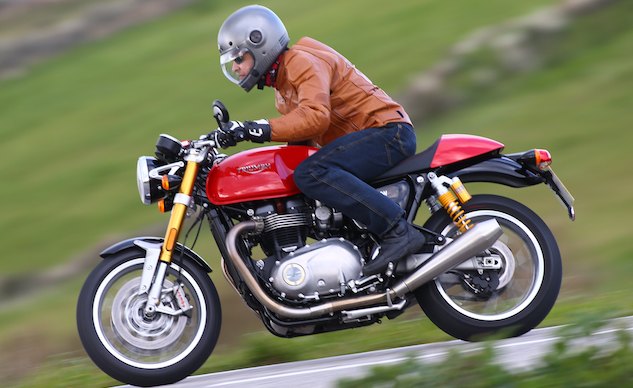
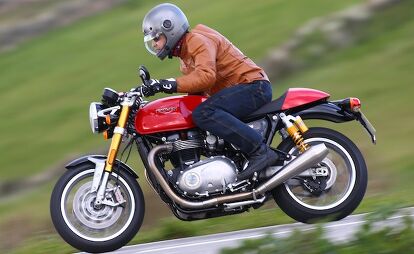











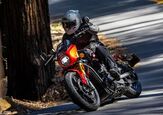
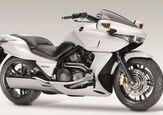
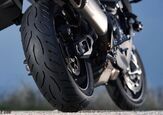
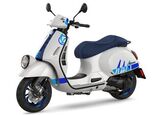
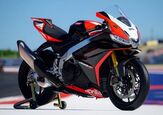
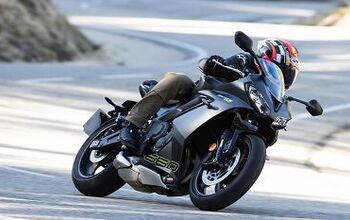
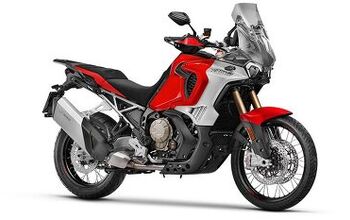
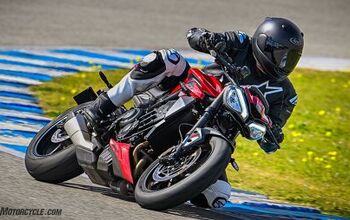
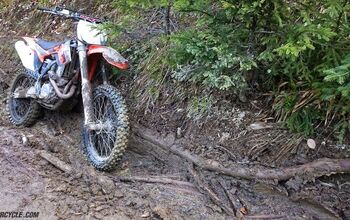

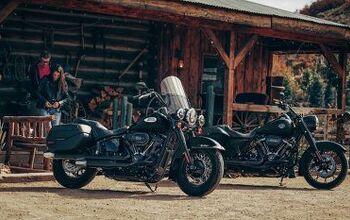

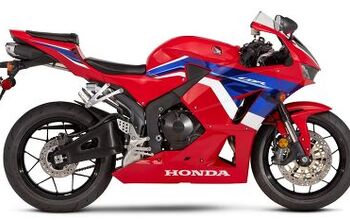
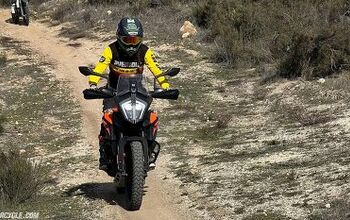

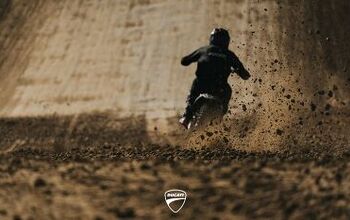
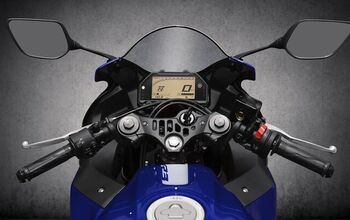
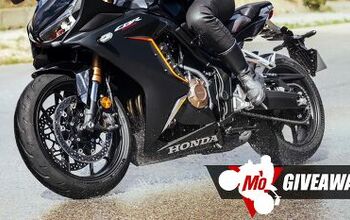

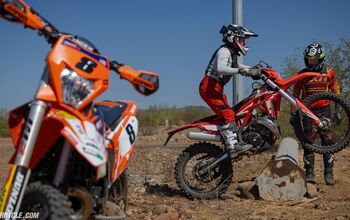
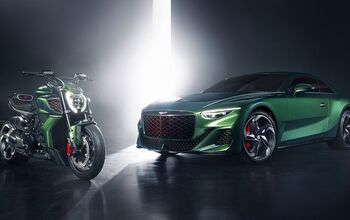
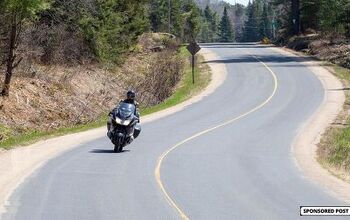
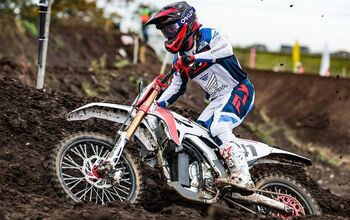
Comments
Join the conversation
My T120 is on the way and will be at the dealer's any time. But now I want the Thruxton.
My children were looking for Form A-1 last month and learned about a web service that hosts lots of form templates . If you are looking for Form A-1 too , here's http://goo.gl/DAoolP